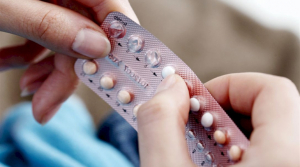The choice of a contraceptive method is an important moment in both men's and women's sexual life. It is at this stage that doubts and bewilderment often arise, ignoring which can lead to undesirable consequences. Birth control pills are one of the most effective and most commonly used methods, but are we sure that it is impossible to get pregnant despite taking the pills?
Today there are two types of birth control pills:
• combined contraceptive pills or estrogen-progestogen drugs;
• minipills or progestin pills .
Is it possible to get pregnant despite taking birth control pills?
Answer: Yes. There is no drug that guarantees 100% contraceptive effect. In particular, the effectiveness of the combined pill when taken correctly is 99%, and if you miss a dose, it drops to 91%. The mini-pill, taken correctly, has the same effectiveness. Therefore, pregnancy cannot be ruled out if precautions are not taken during use. If a woman does not take the pill on time, this can lead to new activity of the pituitary gland, increasing the risk of conception.
There are other reasons that can prevent the pill from working properly, such as incorrect dosage. If the dose is too low, or if diarrhea or vomiting occurs after taking it, all of these can contribute to the drug not working properly.
Interaction with medicinal products and foods
Some antibiotics, especially antiviral, antiepileptic and antifungal agents, may interfere with the action of the tablet and reduce its effectiveness. According to the latest scientific research, the drug griseofulvin may cause clinically important interactions with oral contraceptives . There are also numerous documented clinical cases of women taking oral contraceptives without missing a dose, and becoming pregnant while taking antibiotics such as ampicillin and tetracycline.
You should be aware that, for example, activated charcoal, grapefruit and natural herbs such as St. John's wort can affect the action of the tablet. It is also not recommended to use detoxifying herbal teas, which can cause diarrhea.
How to avoid falling into a risk group?
To prevent unwanted pregnancy or to be 100% sure that you are not at risk, it is recommended to use an additional method of contraception, such as a condom. Similarly, if you have recently started taking the pill, it is highly recommended that you use a condom during intercourse for at least the first 7 days.
Is it possible to get pregnant during the "inactive" week of taking the pill? The combination pill has a break during which you are not allowed to take the pill. The effectiveness of the tablet remains unchanged if it is taken punctually and on the prescribed days.
Infertility and Birth Control Pills: Is There a Connection?
There is a common misconception that taking pills makes a woman infertile. The tablets can be taken long-term, without interruption, and they do not affect fertility. In fact, once you stop taking the pill, your cycle will resume normally and it will be possible to get pregnant after stopping the pill. The period may be more or less long, but from the next cycle you will be able to be fertile again.
The specialists at the Bogolyuby Medical Center draw attention to the fact that there is a difference between taking the morning after pill and the birth control pill. The latter is a preventative, while the morning-after pill is considered a postcoital contraception, which should be taken after unprotected intercourse within 72 hours. Morning-after pills should not be taken frequently or in small amounts, but should only be considered as an emergency measure.



















